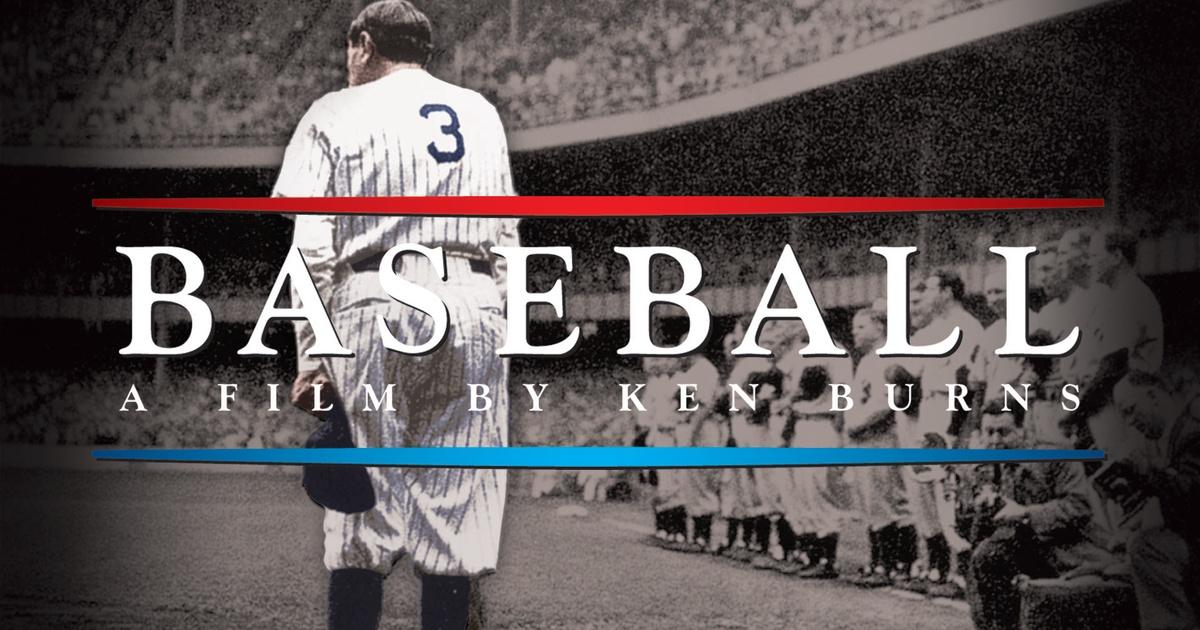September 18, 1994, 25 years ago: Baseball, a documentary miniseries directed by Ken Burns, premieres on PBS. Over 9 nights, a 2-hour "inning" airs:
* Sunday, September 18: "First Inning: Our Game," running from the beginnings of the game, whenever you think that might be, to 1899.
* Monday, September 19: "Second Inning: Something Like a War," 1900 to 1909, the title taken from a quote by the top player to debut in the decade, Ty Cobb.
* Tuesday, September 20: "Third Inning: The Faith of Fifty Million People," 1910 to 1919, the title taken from F. Scott Fitzgerald's line in The Great Gatsby, about the fixing of the 1919 World Series.
* Wednesday, September 21: "Fourth Inning, A National Heirloom," 1920 to 1929. The heirloom in question is Babe Ruth, who changed the game irrevocably in "The Roaring Twenties," helping it bounce back from the Black Sox Scandal a lot sooner than it otherwise would have. The companion book to the series, written by Burns and historian Geoffrey C. Ward, titled its 4th chapter "That Big Son of a Bitch," one of Ruth's many nicknames, but that couldn't be used on family-hour television.
* Thursday, September 22: "Fifth Inning: Shadow Ball," 1930 to 1939. The title refers to a pregame ritual of Negro League players, whose league seemed to be at its peak, but, still, no one would let nonwhite players into what came to be known as Major League Baseball.
* Sunday, September 25: "Sixth Inning: The National Pastime," 1939 to 1948. This chapter showed how World War II paved the way for the desegregation of the game under Jackie Robinson.
* Monday, September 26: "Seventh Inning: The Capital of Baseball," 1949 to 1960. The capital, of course, was New York, not that Brooklyn Dodgers owner Walter O'Malley understood, or would have accepted if he had, because there was less money in it than in moving elsewhere.
* Tuesday, September 27: "Eighth Inning: A Whole New Ballgame," 1960 to 1969.
* Wednesday, September 28: "Ninth Inning: Home," 1970 to 1992.
The Strike of '94 was on, and, just 3 days before the premiere, MLB Commissioner Bud Selig canceled the rest of the 1994 regular season, and the postseason. This was a terrible time to be a baseball fan.
Ken Burns saved us. Sure, there were complaints: Too much focus on the Boston Red Sox and labor struggles, not enough on the Chicago teams, going through the 1970s and '80s too fast. But this was baseball history compressed into less than 2 weeks, understandable to all, including ancient film of things we knew had happened, but had never really seen or felt before.
We could actually see Christy Mathewson and Walter Johnson pitch. We could see Honus Wagner and Ty Cobb, both looking young, shaking hands before the 1909 World Series between their teams. We could see Grover Cleveland Alexander strike out Tony Lazzeri in the 1926 World Series. And we saw more footage of Babe Ruth than ever before. Some of the film that Burns showed hadn't been seen in decades.
Some of the interviewees had already died by the time the
miniseries aired, including Babe Ruth’s sister, Mamie Ruth Moberly; former
Commissioner Albert "Happy" Chandler, star 2nd baseman Billy Herman,
and broadcaster Red Barber. But there were interviews with members of the Hall
of Fame: Chandler, Herman, Ted Williams, Bob Feller, Monte Irvin, Mickey
Mantle, Hank Aaron, broadcasters Barber and Vin Scully, and sportswriter Shirley
Povich. (UPDATE: Former Players' Association Director Marvin Miller, interviewed for this series, was finally elected
to the Hall of Fame on December 8, 2019, 7 years after his death.)
On September 28 and 29, 2010, Burns aired a sequel, The Tenth Inning, covering the years from 1992 to 2009. Some of the surviving interviewees from the early 1990s were interviewed again, and so were some new faces, including Joe Torre and Pedro Martinez.


No comments:
Post a Comment